The Best Supplements to Support Your Exercise Routine
Enhancing your exercise routine through diet and supplementation can significantly improve performance, recovery, and overall fitness levels. However, with a plethora of supplements on the market, it can be challenging to discern which ones are truly beneficial. Here is a guide to some of the best sports supplements to support your exercise routine.

Protein is essential for muscle repair and growth. Protein powders, such as whey, casein, and plant-based proteins (pea, soy, or hemp), provide a convenient way to increase protein intake. Whey protein is rapidly absorbed, making it ideal for post-workout recovery. Casein, on the other hand, digests slowly, providing a steady release of amino acids, which is beneficial before bedtime. Plant-based proteins offer a suitable alternative for those with dietary restrictions or preferences .
Creatine is one of the most researched and effective supplements for enhancing strength and power. It helps replenish adenosine triphosphate (ATP), the primary energy carrier in cells, allowing for improved performance during high-intensity activities like weightlifting and sprinting. Regular creatine supplementation can increase muscle mass, strength, and exercise performance .
Caffeine is a well-known performance enhancer that can improve endurance, strength, and mental focus. It works by stimulating the central nervous system, reducing perceived effort, and increasing alertness. Consuming caffeine 30-60 minutes before exercise can enhance performance in both aerobic and anaerobic activities .
Electrolytes, including sodium, potassium, magnesium, and calcium, are essential for maintaining fluid balance, muscle function, and nerve signalling. During prolonged or intense exercise, especially in hot conditions, electrolytes are lost through sweat. Replenishing them through electrolyte drinks or supplements can help prevent dehydration and maintain performance .
Magnesium plays a vital role in muscle function, energy production, and recovery. It helps reduce muscle cramps and spasms, promotes relaxation, and supports overall muscle health. Athletes often have higher magnesium requirements, making supplementation beneficial. Foods rich in magnesium include leafy greens, nuts, seeds, and whole grains, but a magnesium supplement can ensure adequate intake .
Glutamine is an amino acid that supports immune function, gut health, and muscle recovery. Intense exercise can deplete glutamine levels, leading to an increased risk of illness and slower recovery. Supplementing with glutamine can help maintain immune health and accelerate recovery, particularly during heavy training periods .
Vitamin D is crucial for bone health, immune function, and muscle performance. Many athletes are deficient in vitamin D, particularly those who train indoors or live in areas with limited sunlight. Supplementing with vitamin D can support muscle function and reduce the risk of fractures and infections .
Epsom salts, rich in magnesium sulfate, are often used in baths to promote muscle relaxation and reduce soreness. Soaking in an Epsom salt bath after intense exercise can help relieve muscle tension, reduce inflammation, and improve recovery. The magnesium absorbed through the skin can also help replenish levels depleted during exercise .
Green tea is rich in antioxidants, particularly catechins, which can help reduce oxidative stress and inflammation caused by intense exercise. Additionally, green tea contains a moderate amount of caffeine, providing a natural energy boost. Drinking green tea regularly can support overall health and enhance recovery .
Incorporating the right supplements into your exercise routine can significantly enhance performance, recovery, and overall health. Protein powders, creatine, omega-3 fatty acids, caffeine, electrolytes, magnesium, glutamine, vitamin D, Epsom salts, and green tea are among the best options to consider. Always consult with a healthcare professional or a sports nutritionist before starting any new supplement regimen to ensure it aligns with your individual needs and goals.
References
- Mayo Clinic. (2021). Whey protein: Health benefits.
- Journal of the International Society of Sports Nutrition. (2017). Position stand: Safety and efficacy of creatine supplementation in exercise, sport, and medicine.
- American Journal of Clinical Nutrition. (2012). Effects of omega-3 fatty acids on exercise-induced inflammation.
- International Journal of Sport Nutrition and Exercise Metabolism. (2009). The effects of caffeine on endurance performance.
- Sports Medicine. (2017). Electrolytes and exercise.
- Nutrients. (2020). Magnesium and physical activity.
- European Journal of Applied Physiology. (2008). Glutamine and its effects on immune function and recovery.
- Journal of Sports Sciences. (2011). Vitamin D and its role in skeletal muscle function and recovery.
- International Journal of Preventive Medicine. (2013). Epsom salt: A holistic approach to muscle recovery.
- Journal of the International Society of Sports Nutrition. (2010). Green tea extract and exercise-induced oxidative stress.











